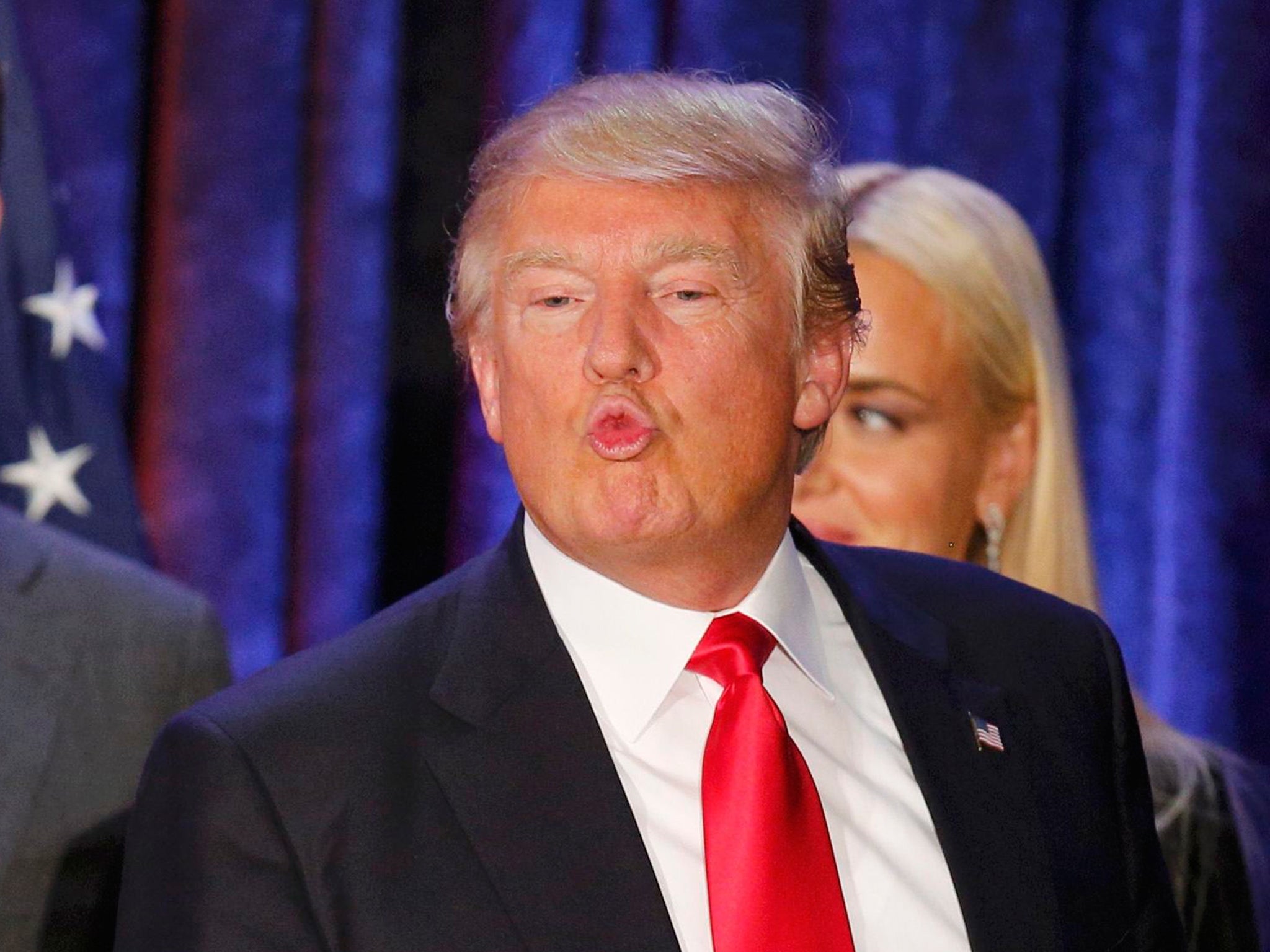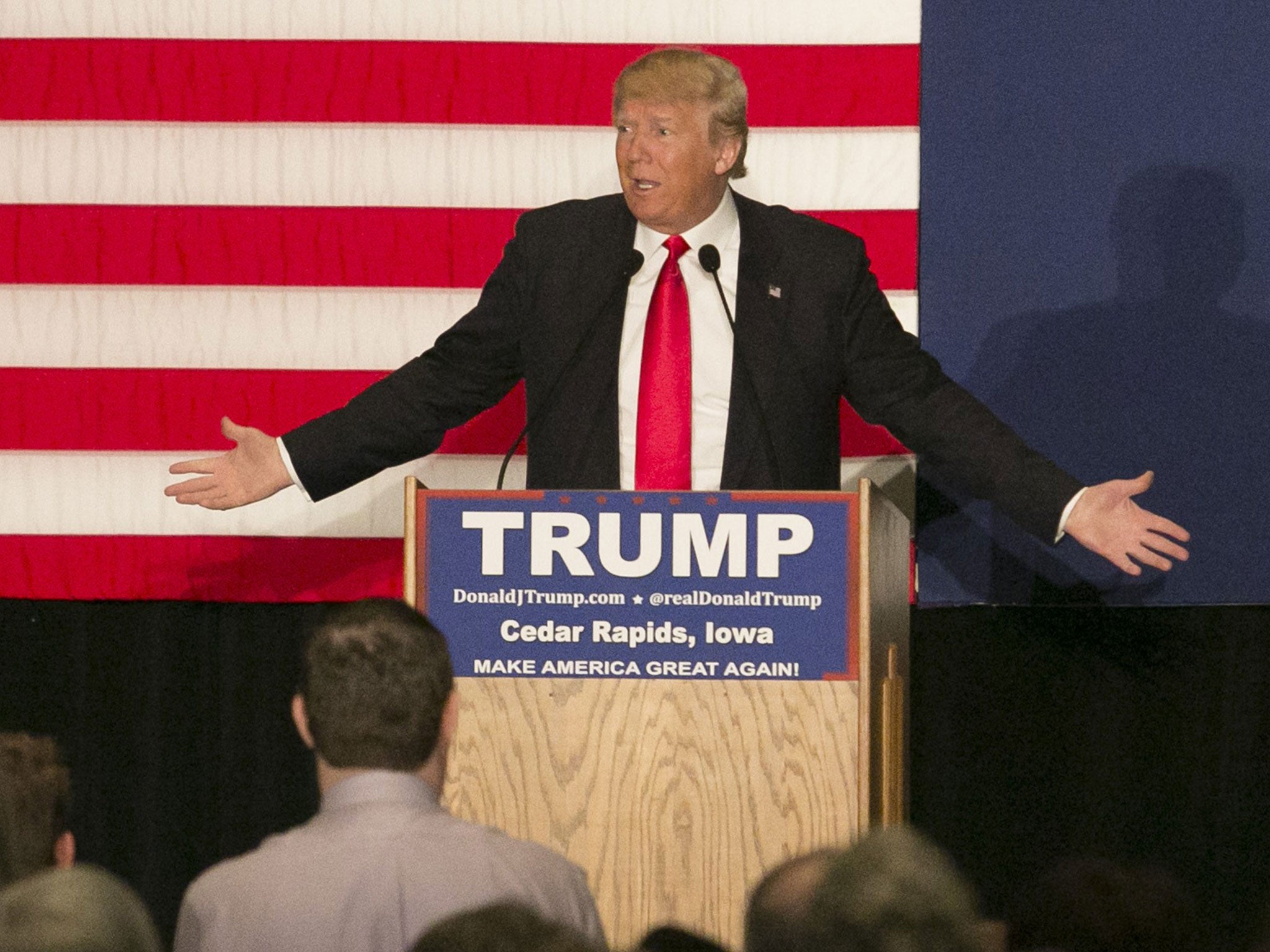US election 2016: The results of the Iowa caucuses show Donald Trump is not as popular as he believes
The first vote of the 2016 presidential election, the Iowa caucuses shows puts Ted Cruz in pole position for the head of the Republicans

Winners
• Ted Cruz: The Texas Republican had to have a win in Iowa - and he got it. Evangelicals, who spurred Mike Huckabee to victory in 2008 and Rick Santorum to a win in 2012, comprised roughly two thirds of Iowa Republican caucus-goers according to entrance polling and Cruz won them convincingly.
Cruz and his team - including notable Iowa endorsers Bob Vander Plaats and Rep. Steve King - built the best organization in Iowa, and it performed as they had hoped. Cruz was the right fit — Southern, social conservative - for Iowa. Still, there's a big difference between potential and results. (See Trump, Donald). Cruz's victory gives him a certain place in the top tier as the race moves to southward after New Hampshire - a shift that should play to Cruz's strengths.

• Marco Rubio: The senator from Florida emerged - as many expected - as the strongest establishment candidate in the GOP field. But he made a strong run at Trump for second place, an unimaginable result even a week ago. As importantly for Rubio, he was leader among all GOP candidates among people who made up their minds in the past week.
That strong closing kick positions Rubio well for the next eight-day sprint between Iowa and New Hampshire - particularly given Trump's disappointing showing, which could well bring the real estate mogul's numbers in the Granite State back down to earth. Rubio is likely to benefit from a push by the party establishment - read: major donors - to get some of the other establishment candidates out of the race. If it doesn't happen before New Hampshire, a second strong Rubio showing in the first-in-the-nation primary could well force it.
• Hillary Clinton: The stakes for Clinton in Iowa were absolutely massive. She needed to win. And (it appears) she will. What Clinton appears to have avoided is losses in the first two votes of the 2016 race. She acknowledged breathing a “sigh of relief” at the result in Iowa in her speech after the vote - although she notably did not declare victory. Clinton is still likely an underdog to Sanders in New Hampshire, but she is also still likely well positioned in the states set to vote after that. The Iowa vote doesn't solve the problems Clinton faced - and faces - from the liberal wing of the party. But a loss would have been such a bad result for Clinton that avoiding such a moment has to be marked as a win.

• Bernie Sanders: Nothing that happened in Iowa tonight is likely to change what will happen in eight days time in New Hampshire. Sanders is a heavy favourite there and will likely remain so. That he - a septuagenarian socialist senator from Vermont - fought Clinton to what amount to a draw (and will be a dead heat in terms of delegates won) is an absolutely remarkable thing that no one could have predicted when he announced nine months ago. The Sanders people will be energized by what happened in Iowa tonight and more convinced than ever that his cause is worth fighting for. The question that remains for Sanders is where he goes beyond New Hampshire - and how he will wear in what could be a protracted delegate fight against Clinton that spans the next several months.
• Democracy: I love the low-techiness of the Iowa caucuses. People in high school gyms gathering into groups on a Monday night. A snippet of conversation picked up by MSNBC at a caucus site at the University of Iowa - college kids trying to convince each other which candidate most aligned with their interests - was awesome, all the way down to the swearing on live TV. (I am pro-swearing as a general rule.) Turnout was through the roof on both sides - 185,000 for Republicans is vastly more than the 121,000 (or so) who voted in the 2012 caucuses - which speaks well of the number of people willing to get involved in this process. For someone who spends his life with this stuff, it was inspiring to watch.
• Stuart Stevens: Mitt Romney's chief strategist in 2o12, Stevens has been the leading voice against the rise of Donald Trump within the GOP. When Fix Boss Cillizza talked to Stuart back in December, he predicted that “given the cultural conservatism of Iowa Republican primary voters, a guy who has been married three times, bankrupt four, is in the gambling business and stumbles over a question about asking God for forgiveness is not a good fit.” Stuart was right - at least for tonight.
Losers
•Donald Trump: When: a) the entire premise of your campaign is that you know how to win at, well, everything and b) polling in the run-up to the vote - including the always-reliable Ann Selzer - shows you ahead, you need to win.
Trump didn't. And, really, he didn't come all that close; he barely held on to second over the hard-charging Rubio. All the questions about whether polling support for him would translate into actual votes came to roost - and those questions will now only grow louder. Iowa Republicans poked a hole in the Trump blimp. What we will find out over the next few days is whether it's a small leak that he can patch over in plenty of time for New Hampshire or whether it's a catastrophic hole that will bring the whole enterprise down. But that we are even talking about that question indicates what a bad night it was for Trump.

• Martin O'Malley: The former Maryland governor just never got enough air under his wings to take off. Once it became clear that Hillary Clinton was going to run, O'Malley was always going to be an underdog. But, the real death blow for his hopes came when Sanders seized the mantle of liberal alternative to Clinton. O'Malley had spent much of his second term piling up a liberal record of accomplishments to be that person but simply got edged out for it. O'Malley officially ended his campaign Monday night. But in truth it was over long before that.
• Terry Branstad: The popular Iowa Republican governor didn't endorse any of the Republican candidates. But he made it abundantly clear that he did not want Iowans to vote for Cruz due to the Texan's opposition to the Renewable Fuel Standard, a major issue for Iowa's farmers.Branstad, an establishment pol through and through, had shown in his own races a way that he knew how to beat back the tea party wing of the party in the GOP. But, on Monday night, he had a lot less success - a high profile rebuke from within his own party.
• Jeb Bush: The writing was on the wall for the former Florida governor for months (and months) in Iowa. There was just no way someone with his profile - establishment, low key, not a front-facing social conservative - was going to be genuinely competitive in this Iowa Republican electorate. No. Way. And yet, for months Bush and his super PAC poured cash and time into Iowa; Bush was in the state as recently as Sunday. On Monday night, he got 2.8 per cent of the vote. So, yes, that was a waste of time and money.
• Jim Gilmore: No one thought the former Virginia governor had a chance on Monday night. But, Gilmore wound up with 12 votes. Not 12 per cent. 12 total votes. I mean, that is horrendous. That's only 12 more votes than I got.

• Donald Trump's concession speech: I had such high hopes. But, we got subdued and grateful Trump, not angry and vengeful Trump. Also, he spoke for roughly two minutes. Come on, man!
Copyright: The Washington Post
Join our commenting forum
Join thought-provoking conversations, follow other Independent readers and see their replies
Comments